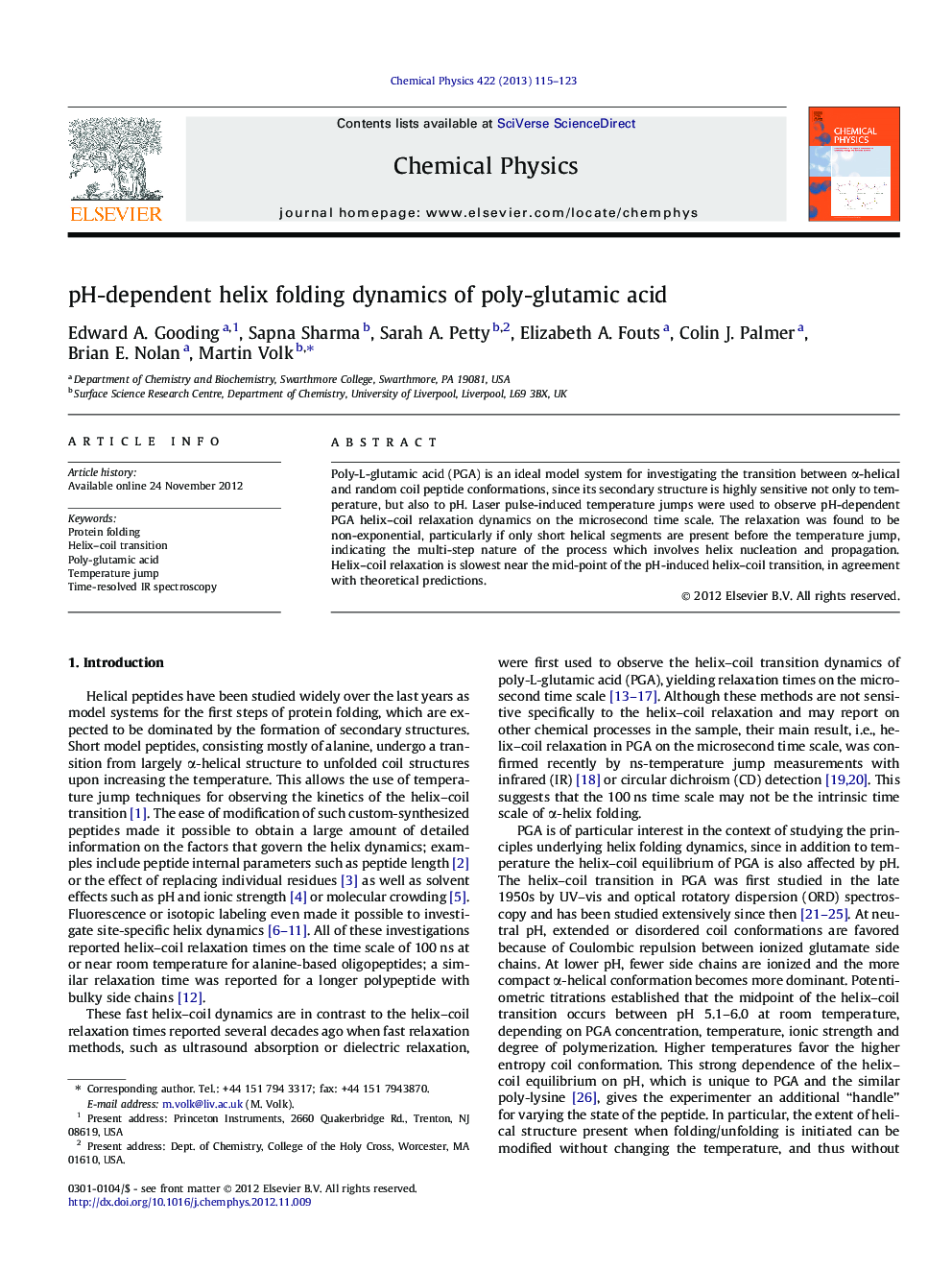| Article ID | Journal | Published Year | Pages | File Type |
|---|---|---|---|---|
| 5373879 | Chemical Physics | 2013 | 9 Pages |
Poly-L-glutamic acid (PGA) is an ideal model system for investigating the transition between α-helical and random coil peptide conformations, since its secondary structure is highly sensitive not only to temperature, but also to pH. Laser pulse-induced temperature jumps were used to observe pH-dependent PGA helix-coil relaxation dynamics on the microsecond time scale. The relaxation was found to be non-exponential, particularly if only short helical segments are present before the temperature jump, indicating the multi-step nature of the process which involves helix nucleation and propagation. Helix-coil relaxation is slowest near the mid-point of the pH-induced helix-coil transition, in agreement with theoretical predictions.
Graphical abstractDownload full-size imageHighlights⺠The helical stability of poly-glutamic acid is sensitive to temperature and pH. ⺠Helix-coil dynamics were studied using nanosecond temperature jumps and IR detection. ⺠Dynamics are non-exponential, indicating the multi-step nature of the process. ⺠Dynamics are slowest near the mid-point of the pH-induced helix-coil transition. ⺠This agrees with theoretical predictions for cooperative transitions in polymers.
